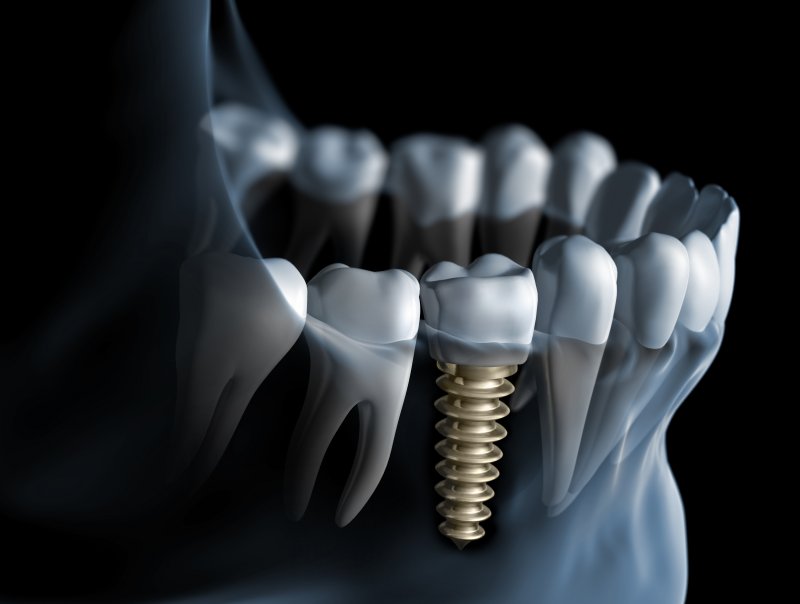
Many forms of tooth replacement – such as traditional dentures and bridges – are only concerned with replacing your teeth so that you can eat normally and smile with confidence. However, there is one type of dental restoration – dental implants – that also takes the health and overall density of your jawbone into account, and as a result it could help you maintain a stronger, more youthful-looking facial structure in the long run. Here’s what you need to know about the link between bone density and dental implant success.
How Can Dental Implants Affect Bone Density?
Dental implants are titanium posts that naturally integrate with your jawbone, essentially becoming part of your body as they serve as support for the crowns, bridges or dentures that replace your teeth. Because they’re connected to the jaw itself, they can stimulate it much like your natural teeth can through everyday chewing.
The jaw needs stimulation to maintain its density, much like how muscles require exercise to stay strong. When teeth are missing, the now “unneeded” parts of the jawbone start to break down. Dental implants, however, can reverse this process and prevent the jawbone from losing its density, which in turn stops your facial structure from collapsing.
Does Bone Density Affect the Success of Dental Implants?
Unfortunately, if you’ve already lost some bone density, it could serve as an obstacle to getting dental implants. If there isn’t enough jawbone left to support the posts, there’s a high chance that your dental implants will fail.
With that said, bone loss doesn’t need to prevent you from getting dental implants altogether. In many cases, patients can undergo a bone grafting procedure to restore lost density. Bone grafting is the process of taking bone tissue from one part of your body (or another source) and placing it in the area where degeneration has occurred to stimulate growth. Thanks to this procedure, patients who normally couldn’t benefit from dental implants can now consider them as an option.
Am I a Candidate for Dental Implants?
In addition to jawbone density, there are several other factors that need to be considered when determining whether you’re a candidate for dental implants. For example, since gum disease and other oral infections can lead to dental implant failure, your medical history and the state of your oral health need to be taken into account. Your dentist will need to perform a thorough examination before choosing the tooth replacement solution that’s right for you.
If you have concerns about your jawbone health, then you should ask about dental implants as early as possible. If they’re the right kind of restoration for you, you can look forward to a stronger, healthier smile in the near future!
About the Author
Dr. Robert J. Sanker started training to use dental implants in 1985 before starting his private practice in Rockville in 1987. He has been voted one of the Top Prosthodontists in Washingtonian Magazine for the past 15 years; needless to say, he has plenty of experience with using dental implants to repair smiles. To schedule an appointment, visit his website or call (301) 468-5566.
